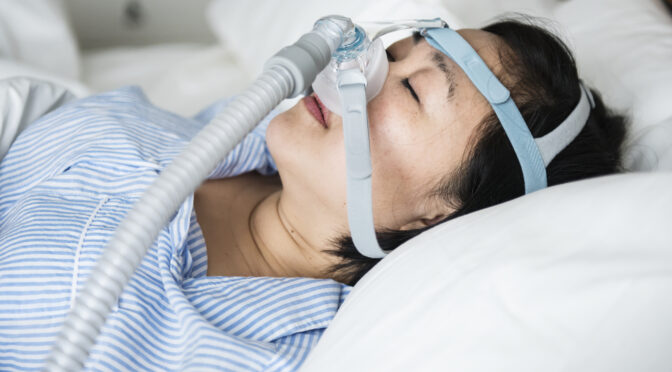Introduction
Snoring is a common problem that many people tend to overlook, often dismissed as a mere nuisance or a humorous quirk during sleep. Yet, despite its prevalence, snoring is much more than just an annoying sound. It can be a sign of underlying health issues that deserve attention.
While snoring may seem harmless, it can signal serious underlying health problems. From obstructive sleep apnea to cardiovascular complications, the implications of snoring can be far-reaching. Understanding the potential risks associated with snoring is crucial for maintaining your overall health and well-being.
This blog aims to explore why snoring shouldn’t be ignored and highlight the health risks associated with it. We will delve into the various causes of snoring, the types of snoring that exist, and the potential health implications that can arise if snoring is left unaddressed.
What is Snoring?
Snoring is the sound produced during sleep when airflow through the mouth and nose is partially obstructed. This obstruction leads to the vibration of the tissues in the throat, resulting in the characteristic noise we associate with snoring. It can happen to anyone at any age and is often exacerbated by certain lifestyle factors or medical conditions.
Types of Snoring:
- Occasional Snoring:
Occasional snoring is typically caused by temporary factors, such as sleeping in an awkward position, nasal congestion due to allergies or a cold, or the effects of alcohol consumption. This type of snoring is usually short-lived and resolves on its own once the underlying cause is addressed. - Chronic Snoring:
In contrast, chronic snoring is a persistent issue that occurs regularly and may indicate a more serious condition, such as obstructive sleep apnea. This type of snoring can disrupt not only the sleep of the person snoring but also their partner’s sleep, leading to significant health consequences over time.
What Causes Snoring?
Snoring occurs when airflow through the mouth and nose is partially obstructed during sleep, causing vibrations in the throat. Several factors contribute to snoring, including:
- Nasal Congestion: Allergies or colds can cause swelling and blockage in the nasal passages.
- Throat Muscle Relaxation: During sleep, throat muscles relax, narrowing the airway.
- Obesity: Excess fatty tissue around the neck can compress the airway.
- Sleep Position: Sleeping on your back can lead to the tongue collapsing to the back of your throat.
- Age: Aging decreases muscle tone, increasing the likelihood of snoring.
There are two main types of snoring: occasional (temporary) and chronic (persistent), which may indicate more serious conditions like obstructive sleep apnea (OSA).
Health Risks Associated with Snoring
Ignoring snoring can lead to severe health consequences, including:
- Obstructive Sleep Apnea (OSA): A condition where breathing repeatedly stops and starts during sleep, leading to significant health risks.
- Cardiovascular Issues: Chronic snoring is linked to increased risks of hypertension, heart disease, and stroke. The stress of disrupted sleep can strain the cardiovascular system.
- Daytime Fatigue: Disrupted sleep patterns can cause excessive daytime sleepiness, impairing daily activities and productivity.
- Mental Health Concerns: Ongoing sleep disturbances can contribute to anxiety, mood swings, and even depression.
- Weight Gain and Diabetes: Disrupted sleep can lead to hormonal imbalances that affect appetite and metabolism.
According to research, untreated OSA affects up to 24% of men and 9% of women, significantly raising the risk of heart problems.
When to Be Concerned About Snoring
While not all snoring is alarming, certain symptoms warrant attention. Red flags include:
- Gasping for air during sleep
- Waking up with a dry mouth
- Excessive daytime sleepiness
- Loud, persistent snoring that disrupts your partner’s sleep
If snoring persists and is accompanied by any of these symptoms, it’s essential to seek medical help.
Treatment Options for Snoring
Addressing snoring often begins with lifestyle modifications:
1. Lifestyle Changes
- Weight Management: Losing weight can reduce fatty tissue around the neck and decrease airway obstruction.
- Sleep Position: Elevating the head while sleeping or avoiding sleeping on your back can help keep airways open.
- Avoiding Alcohol and Sedatives: These substances relax throat muscles, exacerbating snoring.
2. Medical Devices
- CPAP Machines: Continuous Positive Airway Pressure (CPAP) devices keep airways open during sleep. While effective for OSA, they can be cumbersome and require consistent use.
3. Surgical Interventions
- Uvulopalatopharyngoplasty (UPPP): This surgery removes excess tissue from the throat to widen the airway.
- Genioglossus Advancement: This procedure repositions the tongue muscle attachment to prevent airway collapse.
Each treatment has its pros and cons, and it’s essential to consult with a healthcare professional to determine the best course of action based on individual circumstances.
Frequently Asked Questions (FAQ)
1. Is snoring common?
Yes, snoring affects about 45% of adults occasionally and 25% regularly.
2. When should I see a doctor about snoring?
Consult a healthcare provider if snoring is loud, persistent, or accompanied by choking or gasping during sleep.
3. Can snoring be cured?
While many treatments can significantly reduce or eliminate snoring, some individuals may require a combination of lifestyle changes, medical devices, or surgical interventions.
4. How can I improve my sleep hygiene?
Establishing a regular sleep schedule, creating a comfortable sleep environment, and avoiding stimulants before bedtime can enhance sleep hygiene.
Conclusion
Ignoring snoring can lead to serious health implications, especially if it’s persistent. Recognizing the causes and health implications of snoring allows individuals to take proactive steps toward treatment. If you or a loved one struggles with snoring, consider consulting with a healthcare professional for personalized advice and solutions.
If snoring is impacting your health or your partner’s sleep, schedule a consultation with Apex Pulmonology today. Our team specializes in comprehensive sleep studies and personalized care for sleep disorders. Don’t let snoring compromise your health—take the first step toward restful nights! Contact us or visit our website to book an appointment.


